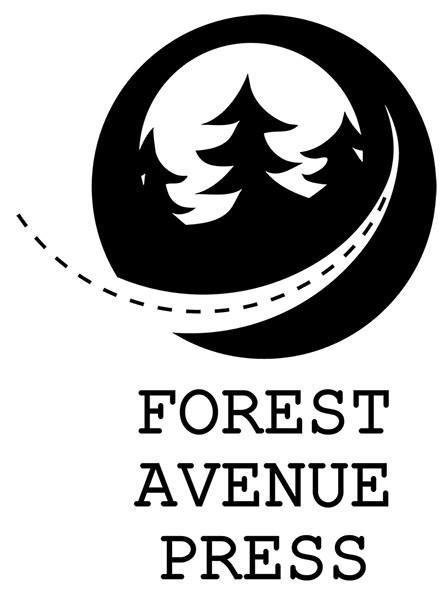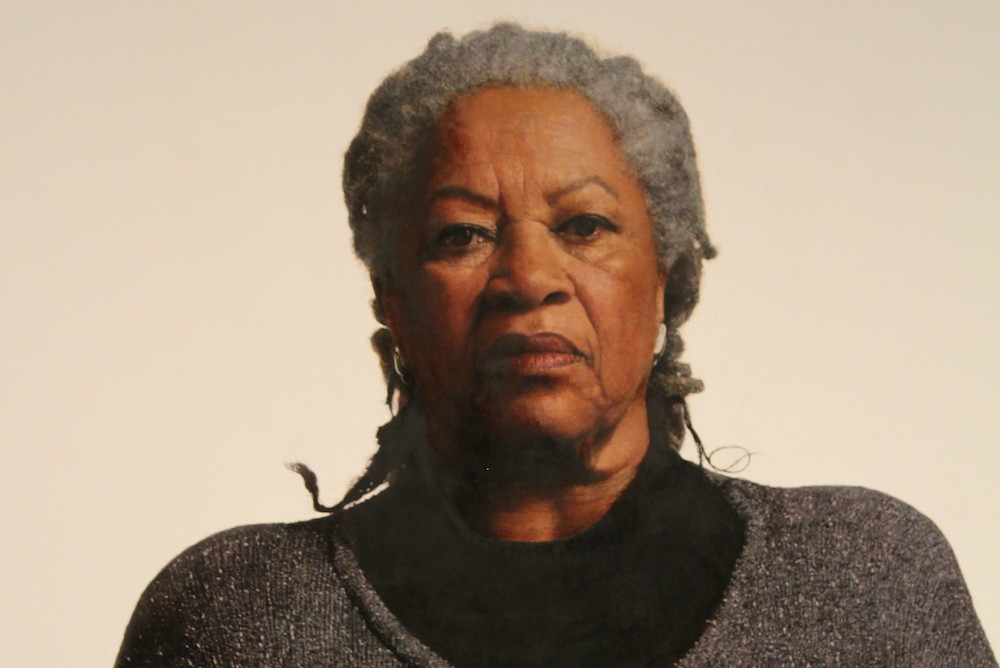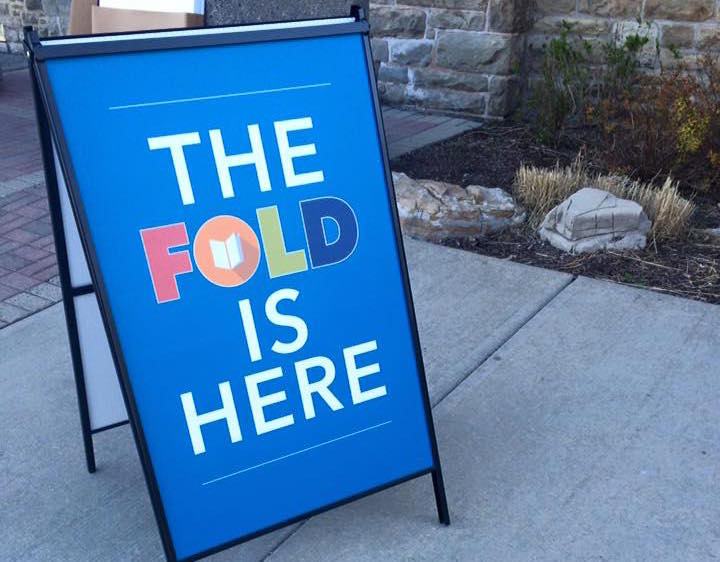Books & Culture
How Indie Presses Are Elevating the Publishing World
Three independent publishers discuss their mission

Independent presses are a lifeline in the publishing world. At a time when large publishing houses are merging into even larger conglomerates, writers may feel like finding a home for their work requires a very specific, and at times corporate, mindset. But indies show that there’s another way. Via contests, open calls for submissions (for agented and unagented writers), and targeted requests, independent presses provide an alternate arena, making publishing more of a reality for marginalized artists and those with unique voices and writing styles. Plus, they’re getting more and more recognition. This year Graywolf Press had several titles as finalists or longlisted for the National Book Award. Paul Harding’s Pulitzer winning book Tinkers was published by a university aligned press (Bellevue Literary).
Rosalie Morales Kearns, Leland Cheuk, and Laura Stanfill are indie publishers seeking to add to the publishing landscape in unique ways that speak to their own experiences and beliefs. I spoke with them about the missions of their presses, the challenges they face, and what authors and publishers should take into account about the business.

Jennifer Baker: In a world full of presses, why did you decide to create yours and what stands out about it that you saw lacking in the marketplace?
Rosalie Morales Kearns: I started Shade Mountain Press in 2013, and launched its first two books in 2014. Our focus is on literary fiction by women. As a feminist, I certainly am not surprised by the VIDA count and other research showing how underrepresented women are in terms of their work being reviewed in the major venues, winning literary awards, being taught in university classes, and being taken seriously in general. Living in a white supremacist culture, I’m not surprised that women of color are even more drastically underrepresented. But perhaps I had a utopian vision that the small press world was more egalitarian, more inclusive, etc. I learned how wrong I was when I was seeking a publisher for my short story collection Virgins & Tricksters. It ended up being published in 2012 by Aqueous Books, a woman-owned press. But before that, as I researched small presses, I kept coming across publishers that praised themselves for being willing to take chances on less commercial work. Then I’d look at their new and forthcoming lists, and see seven out of eight titles by men, nine out of ten titles by men, sometimes 100% of their titles by men.

Leland Cheuk: When I started 7.13 Books last November, what stood out to me was how few literary debuts were being announced every year by the Big Five on Publishers Marketplace. It’s incomplete data since not every agent and editor announces their deal on PM, but when you see the number is in the low 200s, you start wondering how anyone gets published at all. Then you think about all the tens of thousands going into MFA and PhD programs in creative writing. Then you think about all the people who choose not to go into those programs but still want to write a book, all so they can one day be one of the lucky 200 people a year. Most writers don’t realize how small the target they’re aiming at really is. I certainly didn’t.
Most writers don’t realize how small the target they’re aiming at really is. I certainly didn’t.
Laura Stanfill: Forest Avenue began in 2012 as a grassroots effort to publish and promote local talent. Many Oregon authors were knocking on New York doors and being told their voice-driven, original work didn’t fit the established, commercially viable parameters the big houses had set. After hearing so many anecdotes about worthy manuscripts that almost-but-didn’t-quite make it in a city 3,000 miles away, I decided to publish literary fiction by Oregonians and get it on the shelves in Northwest bookstores. Other Portland independent presses — Microcosm, Hawthorne Books, Future Tense, Eraserhead, and others — inspired and mentored me.
JB: What have your experiences been in seeking out marginalized voices that fit the mission statement of your press? And what do you suggest other publishers do to promote more visibility (in-house and with their authors) of marginalized backgrounds?
RMK: Our 2015 and 2016 novels were the result of a submissions call for fiction by WOC. Our 2016 call was specifically for work by African American women, and that resulted in the brilliant novels that will be our 2017 and 2018 titles.
It’s not enough for a publisher to issue a general call for submissions with a little footnote or a little “by the way” statement tacked on at the end, mentioning that they particularly want to see more “diverse” submissions. If you put out a specific call, for authors from a specific background, the message you’re sending is that your next title will definitely be from that group. And that’s an important distinction.

LC: There’s a huge disconnect between the publishing industry and the reality on the ground. When you read the slush, you see there’s plenty of talent, period — including marginalized voices in whichever ways you want to define that. I look for diversity in ethnicity, gender, sexuality, economic strata, but I also look for diversity in the art form of the adult literary novel as a whole, which includes criteria like aesthetics, genre, and storytelling methods. 7.13 has gotten 300 or so submissions in the first year and I estimate 75% are Anglo male because in general they’re more likely to submit whether the manuscript is ready or not. But as word has gotten out about the press, I’m seeing more diverse submissions now. I think it helps that my face is on the website and it’s clear I’m an editor of color. My 2019 list has two novels authored by Muslim American men, novels about same-sex relationships, a novel set abroad, a fabulist collection. When editors and agents say they have trouble “finding talent,” really what they’re saying is that they have less time and money to take chances. And understandably so. They’re working in divisions of big companies in a struggling industry. They’re downsizing, doing more with less, and so on. That said, the Big Five are putting out over 300,000 books a year, why are they claiming to have trouble “finding talent.” The bottom line is if they wanted to spend time and money “finding talent,” they would. Talent isn’t in witness protection.

LS: It’s not enough to dangle a welcome sign in front of a closed door.
Five years ago, as a brand-new publisher with no track record, I believed that inviting marginalized authors to submit would be enough to help our committee find manuscripts that matched our brand. Mistake #1: We issued that invitation on our website, as part of our press submission guidelines, hoping it would be discoverable. Mistake #2: We didn’t yet have a catalog of underrepresented voices to prove that my words were anything more than the same-old rhetoric, or that the door was really open.
We’ve learned a lot since then. Earning national distribution has allowed for more trade journal coverage, which has helped us articulate and amplify our brand through bigger platforms and therefore reach more authors and readers. Submissions grew by 170 percent the year we opened nationally, so that helped us receive — and fall in love with — more manuscripts by authors of marginalized backgrounds.
It’s not enough to dangle a welcome sign in front of a closed door.
JB: What questions should authors be asking of their publishers in general? Authors may consider publication as that final step but there’s so much more to it.
RMK: Authors should get a really clear idea of their publisher’s timetable, and make sure that the publisher is intending to send out advance reader copies, in hard copy, in a sufficient number and in a timely way (four or ideally more months before publication date).
If the publisher is going to do a very light edit, they should be clear on that with the author, so that the author understands they will have to do various rounds of proofreading themselves. My press hires a professional proofreader, and I also do proofreading at later stages, when I’m working with the book designer and then when the file is converted to ebook format. All kinds of glitches can creep in in the layout stage and in the ebook stage.
The publisher should also be clear about how much of the publicity work will be on the author, and the author needs to realize that this could take a lot of time. As a publisher I take charge of creating copy for book jackets, for the press release, and for other promotional materials (frankly, a lot of authors just aren’t that good at describing their own work). Also I handle the work of identifying possible reviewers, querying them, following up, etc.. But that being said, it’s certainly a common practice at very small presses to let the authors create the copy and do the legwork in identifying and contacting reviewers. Small-press publishers have only so much time.
The Great 2017 Indie Press Preview
LS: Information authors should request before signing include details about the press’s distribution model, the estimated pub date, applicable deadlines, publicity plans, galley quantity, sales goals, and specific contract terms. All small press publishers should give their authors a thorough onboarding packet, including information about these topics, the editorial process, rights information, and estimated first-run print quantity. If the press asks for subrights, this packet should detail the mechanisms the press has in place to sell those rights.
Transparency about sales goals is especially crucial; if an author enters a publishing contract expecting to earn enough royalties to pay rent for a year, and the publisher has a sales goal of a thousand copies, the disconnect can be emotionally and financially devastating to the author. Understanding distribution is equally important; if an author wants to see her book on the shelf at her local indie, and the press does print-on-demand and has set bookstore-unfriendly discounts, that author will be surprised and disappointed to learn that the store can’t order their title.
JB: I’d hope that independent presses aren’t seen as a substitute for a larger publisher but as a viable option. Are there some myths you’ve experienced that may make it hard for people to understand how an indie publisher operates in comparison?
LC: Writers don’t understand that if you sign with a big publisher, your eventual sales numbers can become a black mark on you. If you don’t meet sales expectations, you’ll have trouble signing with a big house again because they all look at BookScan. Writers don’t typically think about the all-too-common scenario of having an editor buy your book, get laid off, and then your book is in limbo with no sales, marketing, or publicity support or in the worst case, the deal is cancelled altogether. Writers don’t get that big houses can also ask you to pay out of pocket for your own publicist. Writers don’t get that you might very well end up selling only a few hundred books at a big house too. And if that happens your big house career is basically over. These are all things they don’t tell you in your MFA program.
LS: One of the biggest myths is that small presses can’t possibly sell as many books as Big Five presses. Reality: We actually can and do compete — not with the mega-sellers or the big advances — but with debut fiction, we can hold our own and often exceed what a similar big-five book is selling. I’m actually relying on debut fiction as my bread and butter, so I have a financial — and emotional — interest in these books doing well. They’re not sidelines. They’re our reason for existing.
Writers don’t understand that if you sign with a big publisher, your eventual sales numbers can become a black mark on you.
JB: What’s been a highlight for you as a publisher?
RMK: I end up feeling so invested in my press’s titles that I simply think of them in a shorthand way as “my” titles, and when they win recognition and awards, I’m as thrilled as if the honor was for me. I joke with the authors that I suppose I should give them a bit of credit too. Vanessa Garcia’s novel White Light, the title that earned a starred review in Kirkus, also landed on NPR’s Best Books of 2015 list. Besides being a huge thrill, it was also important for me as validation, confirming my judgment as a publisher and reassuring me that yes, I’m doing this right, I’m onto something with this press I’ve started.
LC: One of my authors had her book launch in front of a full house crowd at Powell’s Books in Portland. She said it was one of the best nights of her life. That’s what it’s all about, isn’t it? Publishing your book is an experience. It’s almost silly that we wait for permission to do so. But if that’s what writers need to move forward into authorhood, I’m happy to provide that permission.

LS: I’m lucky to have been able to attend every single one of our book launches, to date. Watching my authors take the mic and share their stories in front of a hundred-plus people reminds me why I pour so much time and love into our titles. It’s the moment when their potential becomes actualized, where their work moves fully out of their own personal spheres and into the world.
Being a 2017 Publishers Weekly Star Watch honoree means a lot to me because a local bookseller — Rosanne Parry of Annie Bloom’s Books — nominated me. And being on that list is a great reminder that small, independent presses belong in the same room as the big-five tastemakers, even though we don’t have big budgets or giant lists.
JB: What advice would you give someone creating their own independent press?
RMK:
- It takes much more time and much more money than you imagine.
- Be prepared to hire others for anything you’re not an expert in. Hire a professional cover designer, layout person, copyeditor, proofreader, publicist if you yourself lack expertise in those fields.
LC: Do not, under any circumstances, do it for the money. Do it for literature. Do it for your authors.
LS: Find allies and mentors with business models you want to emulate, and ask them for help. Once you’re established in the industry, help the next group of publishers by sharing what you’ve learned. Along the same lines, join PubWest. I joined the board of directors in 2016 with a focus on helping to bring in small presses whose financial health would be directly and positively impacted by having access to the conferences, discounts, roundtables, and networking.








